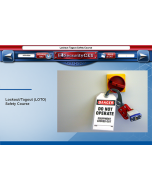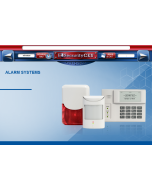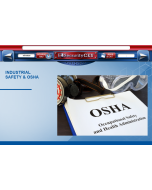Introduction to the Security Profession
This course provides a comprehensive overview of the diverse responsibilities of security professionals, emphasizing the critical aspects of preventing false alarms and ensuring proper system installation. Students will explore the regulatory landscape governing the security profession and the importance of specialized training and experience. Whether you are an alarm company qualifier, installer, service, or inspection personnel, preserving life and property is paramount. This course will equip you with the knowledge and skills necessary for a successful career in the security industry. Throughout the course, examples of quality installations and substandard practices will be presented to underscore the importance of performing tasks in a neat and workmanlike manner.
Read more about the course in the course details below.
By laying the foundation for the basics of the profession, this course will enhance your understanding of installing, servicing, and maintaining well-designed life safety and security systems. Topics will include NFPA codes and standards, which are essential for proper installations. Upon completion, you will be able to understand the security profession and your role within it, recognize applicable codes and standards for electrical and alarm installations, perform basic system installations, explain the functions of alarm systems and their components, describe various types of alarm, security, and automation systems, identify safety issues and personal protective equipment (PPE), and effectively operate the tools and equipment necessary for installations, service, and testing.
Use the grid below to determine which states have CEU approval for this course, along with how many credit hours it has, and any other special instructions.
| State | Hours | Special Instructions |
| California | 1 | |
| Louisiana | 1 | |
| North Carolina | 1 | This course is approved for 1.00 hours of continuing education by the North Carolina ASLB. If you will be taking this course for CEUs in North Carolina, you must notify us and provide your license number and company name so we may submit the appropriate documentation. Please email support@securityceu.com or call 502-254-1590. |
| New Jersey | 1 | This course is approved for 1.00 hours of continuing education by the NJ Fire Alarm, Burglar Alarm and Locksmith Advisory Committee. If you are submitting this course for CEUs in NJ, you must contact us with your NJ license number so we may provide you with the appropriate certificate upon completing the course. Please email support@securityceu.com or call 502-254-1590 when you have finished taking the online content. We will then create your NJ specific certificate and email it to you within 24 hours. |












